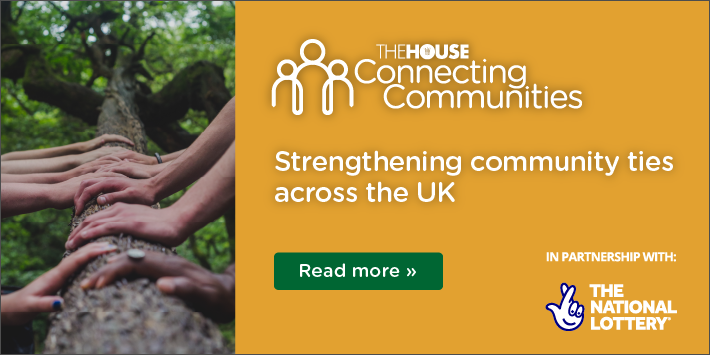LGBT+ History Month is a time to empower those in the present
4 min read
During LGBT+ History Month, it is only natural to reflect on the advances we have made as a society.
The announcement earlier this year that, after the tireless campaigning of my colleagues Lords Lexden and Cashman, pardons and disregards would finally be extended to all who had historically been convicted of consensual same-sex activity, was a mark of just how far we have come.
But while the UK is doing so much to remove the stain of state-sponsored prejudice, Governments around the world continue to actively oppress or stand idly by while LGBT+ people continue to be persecuted under their jurisdiction.
The APPG on Global LGBT+ Rights was founded in 2015 to promote and protect the rights of LGBT+ people around the world and ensure that issues of sexual orientation and gender identity are permanently part of the UK Government’s agenda.
While the fight for LGBT+ rights in the UK is by no means over – the current debate about the Government’s proposed conversion therapy ban is proof that sadly still too many people in the UK do not believe that LGBT+ lives are of equal validity and dignity to those of their heterosexual and cisgender peers – even more work remains to be done globally.
In 2020, the APPG on Global LGBT+ Rights launched our very own Parliamentary Liaison Scheme and so far, 81 MPs and Peers have volunteered to participate.
Perhaps the most significant development for LGBT+ people globally since the foundation of the APPG was the 2018 decriminalisation of homosexuality in India, when the decision of the supreme court liberated an estimated 104 million LGBT+ people from the treat of prosecution. And every year more countries still decriminalise – last year alone Bhutan and Botswana removed their oppressive laws from the statute books.
However, in 69 countries LGBT+ people still remain criminalised and in 34 of those as a result of oppressive laws introduced under British colonial administration. Even more worryingly, the picture globally is not one of predictable, if slow, progress towards greater justice. In Europe alone, Hungary has seen the introduction of its anti-LGBT law which echoes many of the injustices of our own Section 28, dozens of authorities in Poland have declared themselves “LGBT-free Zones” and Belarusian authorities have targeted LGBT+ organisations during the recent crackdown on anti-government protests.
Elsewhere, the fall of Afghanistan to the Taliban represented an all too tangible threat to LGBT+ people, as well as women, girls and religious ethnic minorities, and I am proud of the work the UK Government has done with Rainbow Railroad to bring LGBT+ Afghans to safety and a new life in the UK.
In the face of all of this, it is reasonable to ask, what we as UK parliamentarians can best do to help, especially given our own legacy of colonial oppression. In 2020, the APPG on Global LGBT+ Rights launched our very own Parliamentary Liaison Scheme (the PLS) and so far, 81 MPs and Peers have volunteered to participate. The scheme is built upon the belief that UK parliamentarians are uniquely well placed to engage with fellow parliamentarians around the world who want to advocate for and protect the rights of LGBT+ people as well as scrutinise the work of the UK Government and its diplomatic missions to advance the rights of sexual orientation and gender identity minorities.
Each parliamentarian is assigned a jurisdiction where LGBT+ people still encounter oppression. Every member of the scheme, who we hope will be supported by an identified member of their staff, is then briefed on the current state of LGBT+ rights in that jurisdiction and connected to civil society groups and local activists, and from this year on will be invited to attend regional progress updates with the relevant FCDO minister, where they will have the opportunity to bring up the concerns of local activists.
As Parliamentary travel becomes once again feasible, the PLS will begin to facilitate fact-finding missions to countries of unique concern like Hungary. If you find yourself, this LGBT+ History month at a loss as to what you can do to empower LGBT+ people in the present, please get in touch with my office and we will happily sign you up.

